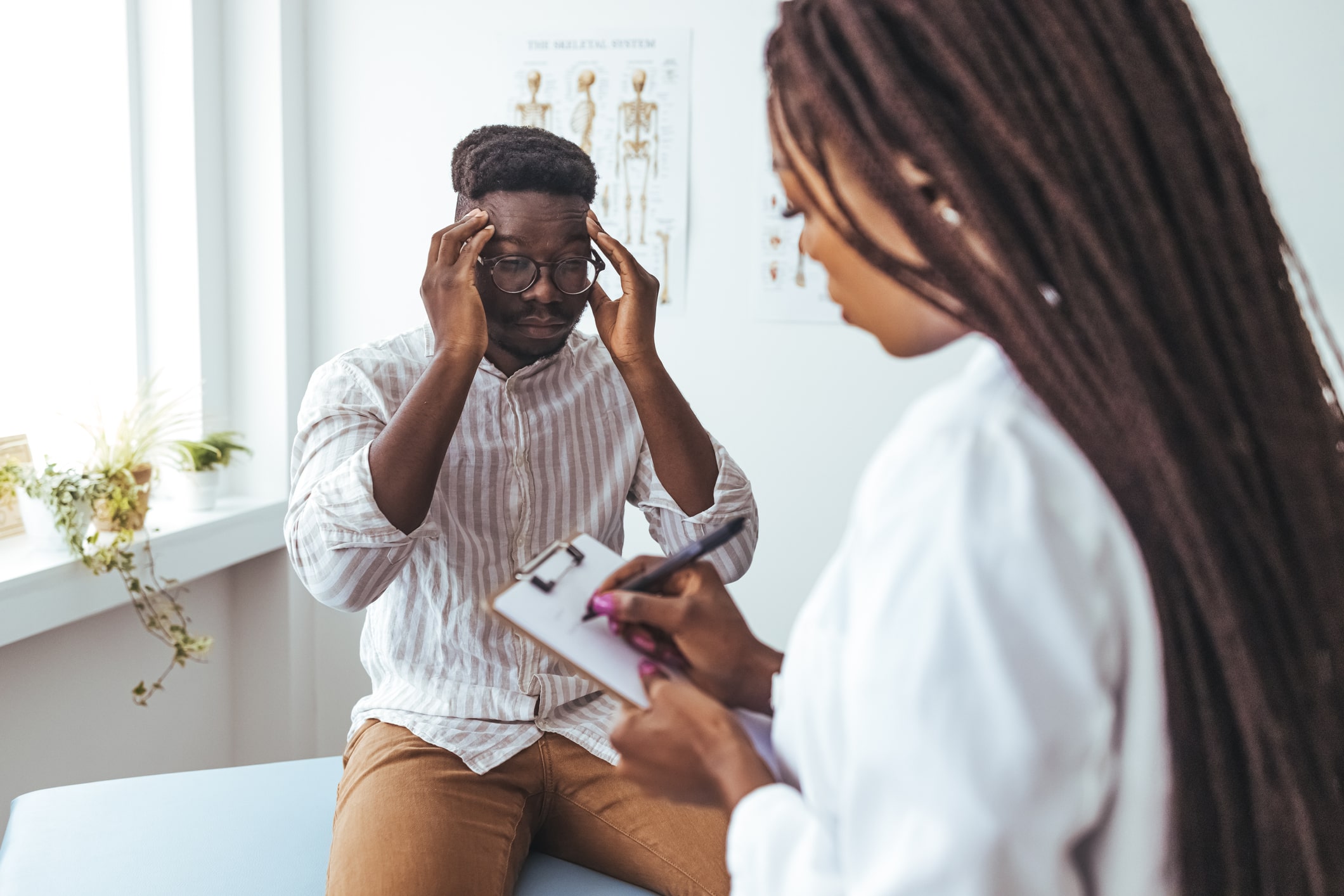While mental health issues are common, many are often left misunderstood and stigmatized, leaving the access to treatment unfound and unaccessible. As of March 2023, concerns around mental health and substance use disorder were at an all time high. According to a survey taken by KFF/CNN, 90% of U.S. adults are currently facing a mental health crisis. From the COVID-19 pandemic, lingering effects still have created disruption in lives that include social isolation, job loss, financial instability, and illness and grief.
As awareness surrounding these issues grow, so does the quest for accessible treatment options. This brings us to an important question: can individuals seeking help for anxiety and depression turn to urgent care centers? This article explores the role of urgent care in addressing mental health concerns, particularly anxiety and depression.
If you or a loved one are struggling with mental health issues, look no further. North Atlanta Behavioral Health, we offer premier mental health treatment in Georgia for those suffering from dual diagnosis disorders. Call us now at 770-230-5699 or verify your insurance now.
The Rise of Anxiety and Depression
Anxiety and depression are among the most common mental health disorders globally. According to the World Health Organization, depression is a leading cause of disability worldwide, while anxiety disorders are the most common mental illnesses in many countries. These conditions can significantly impact an individual’s daily life, affecting their work, relationships, and overall well-being.
Can I Go To Urgent Care for Anxiety and Depression?
Urgent care centers are known for providing immediate medical attention for non-life-threatening conditions. They are a convenient option for physical health issues requiring prompt attention but are not severe enough for an emergency room visit. However, the scope of services in urgent care centers has been expanding, and some are now equipped to handle certain mental health issues, including mild to moderate cases of anxiety and depression.
When to Go To Urgent Care for Anxiety and Depression
- Mild to Moderate Symptoms: Urgent care may be appropriate for individuals experiencing mild to moderate symptoms of anxiety or depression that are not life-threatening but still require prompt attention.
Some of those can be feeling extremely anxious, sad, or irritable for more than a few weeks, thoughts of harming yourself or someone else, trouble concentrating or making decisions, or difficulty sleeping and changes in appetite.
- After-Hours Care: For those who experience a sudden onset of symptoms outside of regular healthcare provider hours, urgent care can be a useful resource.
- Lack of Access to Mental Health Professionals: In areas where access to mental health care is limited, urgent care centers can provide an interim solution.
- Medication Management: Some urgent care centers can assist with prescription refills or adjustments for ongoing anxiety or depression medications, especially in situations where a primary care provider is unavailable.
Limitations of Urgent Care in Mental Health
While urgent care can offer immediate support, there are limitations to the depth and continuity of care they can provide for mental health issues.
- Lack of Specialized Mental Health Professionals: Most urgent care centers do not have psychiatrists or psychologists on staff. Care is typically provided by general practitioners who may not have specialized training in mental health.
- Short-Term Solution: Urgent care is designed for short-term treatment. For ongoing management of anxiety and depression, a long-term relationship with a mental health professional is crucial.
- Inadequate for Severe Cases: Urgent care is not equipped to handle severe or life-threatening mental health crises, such as suicidal ideation or severe depressive episodes. In these cases, emergency medical services or a specialized mental health facility are more appropriate.
Urgent Care Mental Health Options
Urgent care centers can play a supportive role in the broader mental health care system. They can act as an initial point of contact, offering immediate relief for mild symptoms and guiding patients toward more specialized care. For many, urgent care can be a stepping stone in their mental health journey, bridging the gap between recognizing a problem and accessing specialized treatment. However, when it comes to deciding on an urgent care to go to, you have a few different options:
- Walk-In Clinic: Some urgent cares have walk-in clinics that are staffed with mental health professionals. Here, you may receive an initial evaluation, medications and referrals to local mental health resources. Walk-in clinics can help, but should not be utilized as a long-term solution.
- Emergency Room: Emergency rooms is the best option for immediate care if you or someone you love is experiencing a mental health crisis such as suicidal thoughts, psychosis, severe depression or a life threatening situation. At the ER, professionals can evaluate your condition and assess the need for inpatient psychiatric care.
- Telehealth Options: Telehealth can be a decent option for those looking to stay in the comfort of their own home. Telehealth care options can include psychiatric evaluations, medication management and therapy sessions. However, it’s important to know that some telehealth options are not as urgent as in-person care and there may be a wait to see a clinician.
Mental Health Hotlines
There are also hotlines and phone numbers that are available for those in the United States to receive immediate support and help over the phone. Some of these include:
- National Suicide Prevention Lifeline: The National Suicide Prevention Lifeline provides free and confidential support for those struggling with suicidal thoughts.
800-273-TALK (800-273-8255) - 988 Suicide and Crisis Lifeline: The 988 Lifeline provides 24/7 free and confidential support for those in distress, offering help and resources to anyone who needs it. To get in touch with them, dial 988.
988 - National Alliance on Mental Health Helpline (NAMI): NAMI is dedicated to providing lives of Americans affected by mental illness and offers resources and support for those and their families living with mental health conditions
800-950-NAMI (800-950-6264)
- Veterans Crisis Line: The Veterans Crisis Line helps provide support for veterans and their families, connecting them with resources and additional support.
800-273-8255
What Types of Mental Health Issues Can The Urgent Care Help Me With?
Urgent cares can assist with a range of mental health disorders, especially those that require prompt attention but are not severe enough to necessitate emergency room treatment.
- Mild to Moderate Anxiety and Depression: Urgent care can provide initial assessment and short-term management for those experiencing mild to moderate symptoms of anxiety and depression. This may include prescribing medications or making referrals to mental health professionals for ongoing care.
- Stress-Related Disorders: Urgent care can be a resource for those experiencing acute stress reactions or adjustment disorders, which often arise from life changes or stressful events.
- Panic Attacks: For those experiencing sudden panic attacks, urgent care can provide immediate assistance. They can help in managing the acute symptoms and provide guidance on follow-up care.
- Medication Management: If a patient is already diagnosed with a mental health condition and needs a medication refill or adjustment, especially when their primary care provider or psychiatrist is unavailable, urgent care can assist.
- Mild Substance Abuse Issues: In some cases, urgent care may provide initial support for mild substance abuse issues, such as prescription medication misuse. However, they typically refer patients to specialized addiction treatment services for comprehensive care.
- Insomnia and Sleep Disorders: Urgent care may provide initial assessment and recommendations for mild cases of insomnia or other sleep disturbances.
- Behavioral Health Concerns: For behavioral health issues that require immediate attention but do not constitute a severe psychiatric crisis, urgent care can offer initial support and referrals.
The Future of Urgent Care in Mental Health
As the demand for mental health services continues to grow, urgent care facilities are likely to evolve in their capacity to address these needs. There is a growing recognition of the importance of integrating mental health care into all aspects of healthcare, and urgent care centers are no exception. With the advancement of telemedicine and digital health tools, urgent care centers could potentially offer more robust mental health services in the future.
Find Mental Health Treatment in Atlanta Today
While urgent care centers are not a substitute for specialized mental health care, they can be a valuable resource for individuals experiencing mild to moderate symptoms of anxiety and depression. They provide accessible, immediate care and can act as a gateway to more comprehensive mental health services.
However, if you or a loved one are struggling with mental health issues and are looking for more long-term support, North Atlanta Behavioral Health can help. Our robust clinical setting combined with medication management, therapy and psychiatry can help you create new changes in your life. Call today and we can help you get started!













